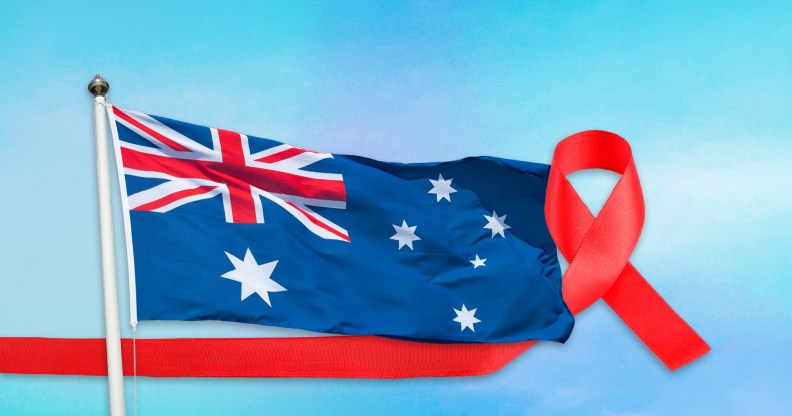Australia on track to become one of first countries in world to eliminate HIV

Australia on track to become one of the first countries in the world to eliminate HIV
A 10-year study has found that Australia could become one of the first countries to “virtually eliminate” HIV transmissions, with new infections decreasing dramatically.
The findings, published in Lancet HIV, showed that HIV infections decreased by 66 per cent between 2010 and 2019 in New South Wales and Victoria, while there was a 27 per cent rise in people accessing effective HIV treatment.
Increased access to HIV treatment and PrEP (pre-exposure prophylaxis) – the medication that prevents a person from contracting HIV – was cited as a key reason for decreased transmissions.
The journal also endorsed the public health strategy “treatment as prevention” or TasP, explaining that HIV treatment “results in virally suppressing the HIV virus”, which reduces a person’s risk of transmitting HIV to another person to zero.
“We examined 10 years of clinical data from over 100,000 gay and bisexual men in New South Wales and Victoria,” Dr Denton Callander, who led the research at UNSW’s Kirby Institute, told the University of New South Wales.
“We found that over time, as viral suppression increased, HIV incidence decreased. Indeed, every percentage point increase in successfully treated HIV saw a fivefold decrease in new infections, thus establishing treatment as prevention as a powerful public health strategy.”
Dr Callander also underlined the importance of access to HIV testing, as well as the “widespread availability” of PrEP.
Professor Mark Stoové from the Burnet Institute, co-senior author on the paper, added that the success of Australian measures such as education on HIV and reduced patient treatment costs could see the country “virtually eliminate” new HIV transmissions.
“Australia is on track to become one of the first countries globally to virtually eliminate the transmission of HIV,” Professor Stoové said.
“The results of this research show that further investment in HIV treatment – especially alongside PrEP – is a crucial component of HIV elimination.”
HIV experts have explained how medical breakthroughs have transformed the treatment and prevention of the virus.
The U=U (undetectable = untransmittable) slogan aims to tackle the misconception that people with HIV can pass the virus on even if they are receiving effective treatment.
In fact, U=U means that if a HIV-positive person has been taking effective HIV treatment, and their viral load has been undetectable for six months or more, they cannot pass the virus on through sex.
In the UK, former health secretary Matt Hancock committed to ending new HIV transmissions by 2030, however, charities and activists have have warned this won’t happen without better utilisation of all the tools to prevent HIV transmission.
Richard Angell, chief executive at Terrence Higgins Trust, told PinkNews it’s “possible but not probable” that the UK will reach the 2030 goal. It’s new campaign – HIV, time’s up – has been launched to ensure Hancock’s target is achieved on schedule.
It is calling for the expansion of opt-out HIV testing in A&Es to all areas with high HIV prevalence and for prevention pill PrEP to be made available outside of sexual health clinics.
Some “huge successes” were praised in terms of UK HIV prevention, but experts explained that inequality and stigma, as well as a lack of resources, were still hurdles to overcome in order to meet Hancock’s aim.

